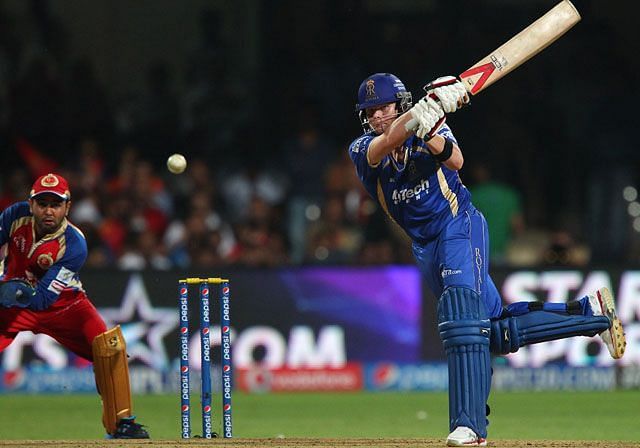
IPL 2018 Retentions: Decoding Rajasthan Royals' policy
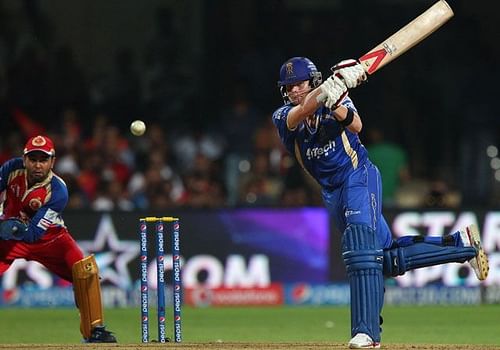
When the Indian Premier League was brought to the masses in 2008, eight teams embarked in a new journey by participating in the league, anticipating what the cash-rich league had to offer, with one eye out to develop the game's shortest format which was only in its toddler years following a successful World T20 in 2007.
One among the eight teams was the Rajasthan Royals which was led by the legendary leg-spinner Shane Warne - who also assume the role of the coach for the season. Impressive performances in the group stages led the Royals to the semi-finals in which an all-around performance from Shane Watson booked them a spot in the finals.
Finals time beckoned and the spirited youngsters of the Royals outfit were at the throats of their opponents, the Chennai Super Kings who they beat by three wickets to clinch the first IPL title, jumping around as the DY Patil Sports Academy in Mumbai celebrated the closure of a successful IPL season.
Fast-forward to ten years down the line, the Royals were posed with a strange dilemma. They were making a much-anticipated return to the IPL after a two-year ban for betting and the resources to form a core for their season were limited to just six options from which the management opted for one name that has only grown with time - Steven Smith.
Emotions - A driving factor
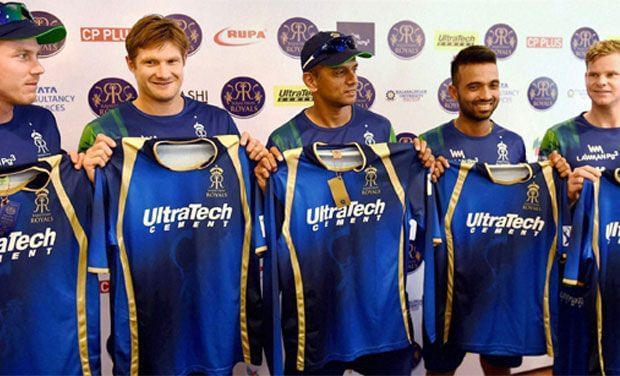
Following the inaugural season victory in 2008, the Royals were praised for unearthing young talent and nurturing them, rather than opting for superstars to win them encounters. After Rahul Dravid joined the Royals' army in 2011, he led the young team to the finals of the 2013 Champions League where they agonisingly fell short to the Mumbai Indians.
With a knack for developing youngsters to play vital knocks in crucial stages of a match, Dravid went on to lead his young brigade for a couple more years before he assumed the mentor's role in 2014.
The next year, the Royals came under the scanner for spot-fixing and were banned by the Lodha committee along with the Chennai Super Kings for a period of two years that landed the players' careers in hot soup.
Come 2018, a lot of apprehensions surrounded Rajasthan's return to the IPL but the return was not going to be the rosiest. While most teams had more than 7-8 players to construct the exoskeleton of their team, the Royals were given limited options - Steven Smith, Ajinkya Rahane, James Faulkner, Dhawal Kulkarni, Pravin Tambe.
The limited options meant that the connect was now gone. Watson shifted base to RCB and took Binny along with him. Chris Morris was now a vital part of Delhi while Sanju Samson joined the same team. Rahul Dravid was no longer going to be a calm, influential head in their think-tank. The thought of building a core was sure to hit them hard.
Steven Smith, an automatic choice
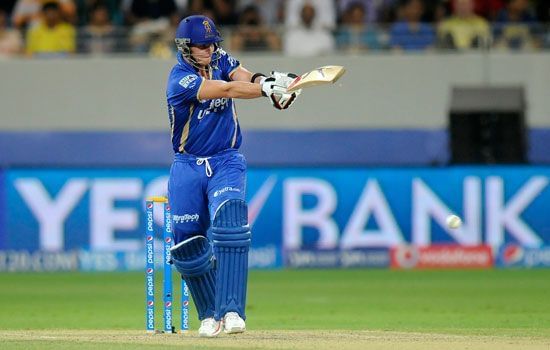
If the ongoing Ashes series was anything to go by, then Steve Smith was an automatic choice, with his bradmanesque batting taking the world and record books by storm.
Even then, the T20 format is one that has demanded very different traits in a batsman. Innovativeness, aggression and a knack for scoring at a quick pace. In the 69 games that Smith has played in the IPL - 24 of them for Rajasthan - Smith has 1703 runs at a good strike rate of 131.70 and an average of 37.02 that paints a good picture and justifies his retention for a good fee.
In addition to this, Smith is also the skipper of the Australian national team in all formats of the game and his technical approach to batting has received laurels from pundits and fans alike. Given his current influence in cricket and authoritative presence on the field, it comes as no surprise that Smith was retained by RR as their first and only choice.
However, what's struck the eye is the omission of Rahane and Faulkner, who are match winners in their own right and would have been vital additions to the line-up.
RTM for Rahane/Faulkner - Food for thought?
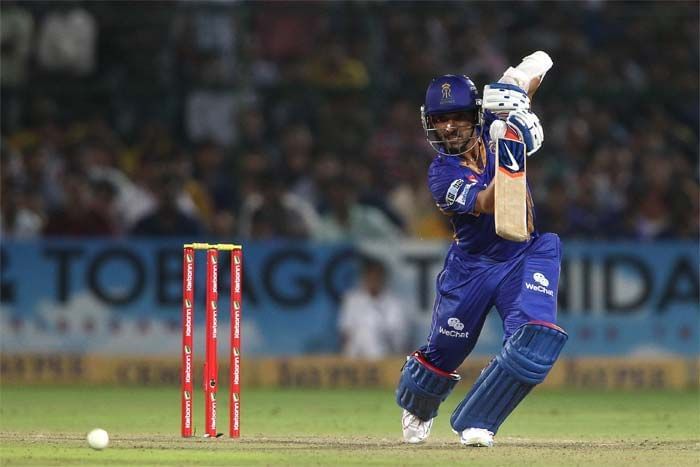
When Rahane joined the Royals in 2012, he enjoyed a phenomenal run, amassing 560 runs in 16 games to emerge as the highest run-getter. Vital contributions in the next two years followed yet another fantastic year in which he made four half-centuries in 14 games to get RR off to good starts at the top of the order.
Across his IPL career, Rahane enjoys a decent average of 33.59 at a strike rate of 120.59. However, in recent times, he has been out of favour in the Limited-Overs format and last played a game in October 2017 against Australia.
Even while playing in the IPL 2016/17 for the Rising Pune Supergiant, Rahane did not enjoy the best of seasons, scoring just 382 runs from 16 matches at a disappointing strike rate of 118.26 that could have planted a seed of doubt about his retention in the minds of the RR think-tank.
However, the question remains - Does experience count for nothing?
Similar is the case of Australian all-rounder James Faulkner, whose death bowling and hard hitting lower down the order has come to save his team on a countless number of occasions.
Even while playing for the Royals ahead of the Gujarat Lions in the Indian Premier League, Faulkner was given the task of playing the finisher's role which he assumed to good effect, hitting the long ball as and when required.
While his batting has come to the fore on certain occasions, his economy has been a little on the higher side that could have played antagonist to his retention ahead of the auctions later this month.
While the omission of Rahane and Faulkner might have raised quite a few eyebrows, it will be interesting to see how Rajasthan play to build their team around their talismanic skipper Steven Smith which will be determined on the 28th of January 2017 when the composition of the team will be drawn out at the end of the mega-auction in Bengaluru.